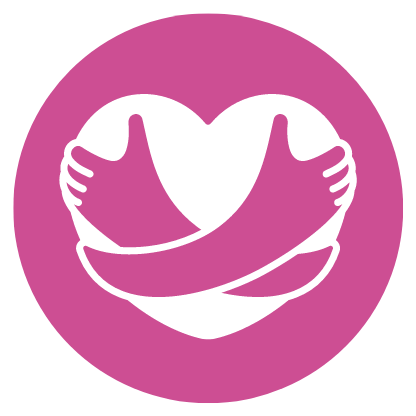Unlock the power of peer coaching to achieve behavioral change - join Marshall Goldsmith in this insightful video!
Peer Coaching for Behavioral Change by Marshall Goldsmith is an innovative method for managers to help their direct reports as well as themselves. It encourages everyone to become a coach and a coachee and offers a way to provide feedback and recognize change in a scalable manner. In this video, Marshall explains the process of Peer Coaching and how it can help in terms of coaching for behavioral change. He discusses how to practice 'feedforward', how to support the other person, and how to avoid making them feel guilty or ashamed. Results have been found to be spectacular when this process is followed, and it is a great way for managers to increase their coaching capabilities without having to hire an external executive coach.
Learning Outline
1. Peer coaching is a more accessible and feasible alternative to hiring an executive coach for individuals and managers.
2. The peer coaching process involves selecting an area for behavioral change, engaging in feed-forward conversations with key stakeholders, and meeting with a peer coach once a month.
3. The peer coach’s role is to facilitate, support, and encourage, not judge or criticize the individual.
4. Positive feedback and reinforcement should be used to help the individual execute and progress in the area of behavioral change.
5. Guilty and shame should be avoided and the focus should be on the future and not the past.
6. Research has shown that peer coaching can be just as effective as a fancy executive coach.
7. This process is scalable and can be used with thousands of people.
Instructional Content
Peer coaching is becoming an increasingly popular way of helping people achieve behavioral change. It is a more cost-effective and efficient solution than the traditional executive coaching, and it has the potential to reach a larger number of individuals. Marshall Goldsmith, a renowned executive coach and author, outlines the core components of successful peer coaching, and how it can be used to improve individual behaviors.
The primary goal of peer coaching is to help individuals develop new behaviors and habits. Goldsmith suggests using Feed-forward, a process of soliciting ideas about the future from key stakeholders, such as direct reports, peers, and managers. This process is beneficial in that it helps individuals to focus on the future, rather than judging the past.
It is important to remember that, while peer coaching can be successful, it can also fail if the individual being coached has a negative experience. Goldsmith suggests keeping the process positive and supportive, and avoiding criticism or judgment. He emphasizes that the role of the peer coach should be to facilitate and encourage, not to judge.
Peer coaching is a powerful tool that can be used to help individuals make meaningful changes in their behavior. Following Goldsmith’s advice, it is possible to create a supportive, positive environment that allows for meaningful, lasting change. By implementing the Feed-forward process, and maintaining a supportive relationship with the individual being coached, it is possible to achieve measurable results. Marshall Goldsmith’s video provides a great overview of the process and how it can be used to achieve behavioral change.
Leadership
Peer coaching is an innovative approach to engaging learners in leadership development through the use of peer-to-peer relationships. This type of coaching focuses on the development of healthy behaviors, emotional intelligence, and skills development. It is an effective method to cultivate leadership in learners as it encourages collaboration, communication, and problem-solving.
Marshall Goldsmith's video provides a comprehensive guide to how to use peer coaching to develop leadership skills. The key to successful peer coaching is to ensure that everyone involved is working towards the same goal. This requires establishing a clear vision and setting expectations for everyone involved. Goldsmith suggests using a simple "feed-forward" approach to help learners identify areas of improvement and set achievable goals. This approach encourages learners to solicit feedback from their peers and learn from their mistakes.
To ensure that peer coaching is successful, it is important to foster a positive environment. Goldsmith emphasizes the importance of avoiding guilt and shame when giving feedback and instead focusing on providing positive reinforcement and encouragement. This type of approach helps learners to feel more comfortable in their roles and encourages them to take action.
Finally, peer coaching can be used to cultivate emotional intelligence. Goldsmith suggests that learners meet with their peers once a month to discuss their progress and receive feedback. This allows learners to gain insight into their own behaviors and learn how to better interact with their peers. By engaging in this type of dialogue, learners can develop emotional intelligence skills to better understand their peers and work together more effectively.
Peer coaching is an effective method to help learners develop leadership skills. By using Goldsmith's approach, learners can learn how to collaborate, communicate, and problem-solve while developing healthy behaviors and emotional intelligence. By setting expectations and providing positive reinforcement, peer coaching can help learners to cultivate the skills needed to become successful leaders.
Coaching
Peer coaching is an invaluable resource for upskilling yourself to become more successful. As demonstrated in the video 'Peer Coaching for Behavioral Change' by Marshall Goldsmith, it is a powerful tool for personal growth and professional development. Through peer coaching, individuals are able to learn from their peers and receive feedback or advice on how to improve their behaviors or skills.
Peer coaching has been proven to be an effective way to bring about behavioral change. According to research conducted by Goldsmith, the results have been "spectacularly good", with individuals reporting positive changes in their behavior and achieving their desired goals. Furthermore, peer coaching is also a more cost-effective alternative to executive coaching, as it is much more accessible and scalable.
In particular, the concept of 'feed-forward' has been identified as an important part of successful peer coaching. Essentially, it involves asking for ideas for the future rather than feedback about the past, and not judging or critiquing the suggestions made by the peer. Additionally, it is important to provide positive reinforcement and encouragement to ensure that the peer coach is motivated to continue.
Overall, peer coaching is an invaluable resource for upskilling yourself and achieving personal and professional growth. By following the principles outlined in the video, such as the concept of 'feed-forward' and providing positive reinforcement and encouragement, individuals can ensure that their peer coaching sessions are successful and bring about the desired outcomes.
Healthy Behaviors
In this video, "Peer Coaching for Behavioral Change" by Marshall Goldsmith, the concept of peer coaching is introduced as a way to upskill oneself for personal growth and professional development. Through peer coaching, individuals are able to have a one-on-one coach-coachee relationship without the need for an outside executive coach. In a typical peer coaching session, the coachee will select an important area for behavioral change and practice feed-forward. This means that rather than asking for feedback about the past, the coachee should ask for ideas for the future. Additionally, the peer coach should not judge or critique ideas, but rather provide positive support and encouragement.
The results of peer coaching have been found to be spectacular. Through research, two PhD students found that when the process was followed correctly, the results of peer coaching were just as good as those from a professional executive coach. In order for peer coaching to be successful, there are two key rules that must be followed: do not make the other person feel guilty or ashamed and do not give negative feedback about the past. Instead, the peer coach should focus on providing positive feedback and ideas to help the coachee execute their goals.
By following the peer coaching process, individuals are able to upskill themselves and achieve personal growth and professional development. The concept of peer coaching is an effective and scalable way to help individuals become more successful in their lives and careers.
Emotional Intelligence
Upskilling yourself with Emotional Intelligence can have an immense impact on both personal growth and professional development. The video “Peer Coaching for Behavioral Change,” led by Marshall Goldsmith, is a fantastic example of how peer coaching can be used as an effective upskilling tool. Peer coaching is a great way to learn and practice Emotional Intelligence skills, as it allows for an immediate exchange of ideas and feedback. Through peer coaching, each person takes on both the role of the coach and the coached and receives input from both sides. Research has shown that this type of coaching can lead to impressive results, with one study finding a 17% increase in productivity and a 53% decrease in stress among participants.
Emotional Intelligence skills such as active listening, self-awareness, and recognizing the emotions of others are key tools for upskilling yourself. Marshall Goldsmith’s peer coaching model encourages a “feed-forward” approach, where participants focus on what they can do in the future rather than dwelling on past mistakes. This approach helps to avoid feelings of guilt or shame, which can be debilitating and ultimately lead to giving up.
Upskilling yourself with Emotional Intelligence is a valuable investment for both personal growth and professional development. Peer coaching, as demonstrated in the “Peer Coaching for Behavioral Change” video, is a great way to practice and hone these skills. Through this method, participants can build upon their self-awareness and learn to recognize and respond to the emotions of others. Learning these skills can have a lasting and positive impact on both personal and professional success.
For Learners
Watching the video Peer Coaching for Behavioral Change by Marshall Goldsmith is beneficial for personal growth and professional development. The key takeaway from this video is that peer coaching is the way of the future for coaching and is a great way of implementing and managing behavioral change. The positive benefit to watching this video is that one can learn the process of implementing peer coaching and the key rules to make it successful. Additionally, it provides insight into how to create a positive and supportive environment when coaching in order to ensure successful behavioral change.
Not learning the content of this video can be detrimental. If one does not watch this video, they will not have the necessary knowledge to properly implement peer coaching, which could lead to unsuccessful attempts at managing behavioral change.
Using the ‘what’s in it for me’, ‘what’s in it for them’, ‘what’s in it for us’, and ‘what’s in it for the world’ approach to learning the content of this video, there are multiple benefits for the learner. What’s in it for me is that I can learn the process of implementing peer coaching and the key rules to make it successful. What’s in it for them is that I can create a positive and supportive environment when coaching, which can lead to successful behavioral change. What’s in it for us is that we can all benefit from successful peer coaching, as it can lead to a better team dynamic and improved work environment. Finally, what’s in it for the world is that successful peer coaching can lead to a better society and a better future.
Overall, watching this video is beneficial for personal growth and professional development. By learning the content of this video, one can have a better understanding of how to properly implement peer coaching, which can lead to successful behavioral change and a better society.
For Employers
This video by Marshall Goldsmith explains the concept of peer coaching for behavioral change. This concept is a great way for employers to learn new skills and differentiate themselves from their competition. With peer coaching, managers are able to receive more coaching while still being able to manage their workload. The process is simple and encourages individuals to work on one important area of behavioral change, such as listening or recognition. This approach allows for feedback from key stakeholders and encourages input on a regular basis.
The process of peer coaching has been proven to be successful in research and results have been spectacular. To make the process work, employers should make sure to avoid making the other person feel guilty or ashamed. Instead, they should focus on providing positive reinforcement and support.
By utilizing the concept of peer coaching, employers can gain a competitive advantage. Not only will their team be able to learn new skills, but customers and clients will also perceive the products and services more positively. By leveraging the power of this video and its content, employers can ensure they are providing the best service to their customers and staying ahead of the competition.
Career Path
Completing a course in Leadership based on these competencies: Coaching, Healthy Behaviors, and Emotional Intelligence would be a great way for your clients to gain the skills they need to get ahead in their career path. With these competencies, your clients will be able to hone their ability to lead, manage and motivate their peers and colleagues. They will also learn how to create a healthy workplace environment and how to effectively manage their emotions in order to be successful.
Leveling up by watching this video “Peer Coaching for Behavioral Change” by Marshall Goldsmith and reviewing the transcript, your clients will gain valuable insight into how to create a successful peer-coaching process and how to maximize the benefits of this powerful tool. They will understand the importance of providing positive reinforcement and encouragement to both peers and colleagues, as opposed to judgment and criticism. This will help them create and sustain meaningful relationships, which is essential to career success.
By mastering these skills, your clients will be able to close the Skills Gap and stand out among their peers in the job market. They will have the skills and knowledge they need to be successful in high demand, high growth industries and to make meaningful work in the future. Not only will they be more employable and promotable, but they will also have the confidence and drive to take charge of their career path and create the job they truly deserve.
Meaning
"The only way to make a man trustworthy is to trust him" -Henry Stimson. This quote speaks to the importance of trust when it comes to coaching for behavioral change. As Marshall Goldsmith discussed in his video, peer coaching is a scalable and cost effective way for employers to develop their employees. When utilizing peer coaching, it is important for employers to trust the process and trust the participants. Without trust, the process will not be successful. This quote speaks to the importance of trusting your peers, as trust is essential for peer coaching to be effective. By trusting each other, employers and employees can develop a safe and supportive environment that encourages growth and development.
Takeaway
Peer coaching is an effective and scalable way to help people improve their behavior. It involves picking an area for improvement, seeking input from key stakeholders, and having a supportive peer coach to provide guidance and encouragement. It is important to focus on the future and not judge or criticize past behavior. Positive reinforcement is key to ensure continued progress.










 70 Creds - Leadership
70 Creds - Leadership



